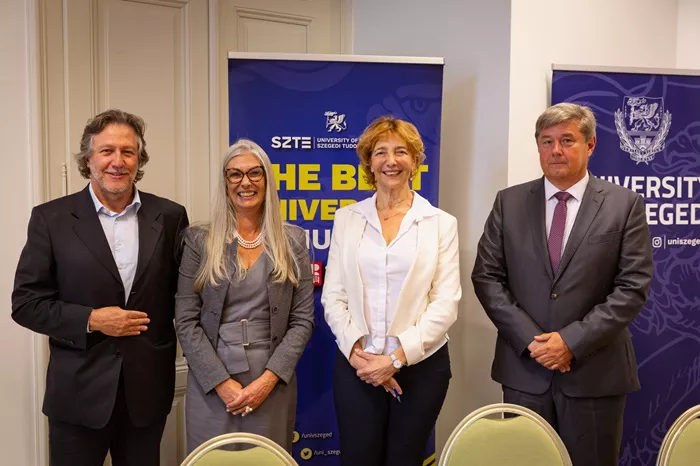The University of Szeged traces its roots back to May 12, 1581, when István Báthory founded the Jesuit College in Cluj-Napoca, recognized as its legal predecessor. On May 12, 2025, marking 444 years since its founding, SZTE celebrated with a symbolic “birthday gift” by signing two strategic partnership agreements with leading South American research institutions.
The agreements were signed at the Rector’s Office with Brazil’s Oswaldo Cruz Foundation (FIOCRUZ) and the Pasteur Institute in Montevideo, Uruguay. These partnerships will promote research and education in globally important healthcare fields.
A new interdisciplinary institute was created under these agreements and will operate within SZTE’s Center of Excellence for Interdisciplinary Research, Development, and Innovation. The institute will focus on fungal infections, especially on host-pathogen interactions involving harmful species. This research is urgent as over one billion people suffer from fungal infections worldwide, with 1.5 million deaths each year.
SZTE has collaborated with FIOCRUZ researchers for over ten years across Brazil and has long-standing ties with the Pasteur Institute in Paris and other Pasteur Network members. The new agreements strengthen these ties and emphasize shared goals in biomedical innovation and infectious disease research.
At the opening ceremony, SZTE Rector Prof. Dr. László Rovó said the day was especially meaningful, coinciding with the university’s 444th anniversary. He expressed hope that the new center will gain global recognition. Located within the Institute of Biology, the center includes Hungary’s only in vivo experimental station and five renovated labs to support antimicrobial and antifungal therapy development.
Prof. Rovó also highlighted the role of SZTE alumna Professor Katalin Karikó, Nobel Prize winner in Physiology or Medicine 2023, whose support helped fund the project. He said her endorsement assures the project’s strong scientific foundation and importance in addressing a critical public health challenge.


